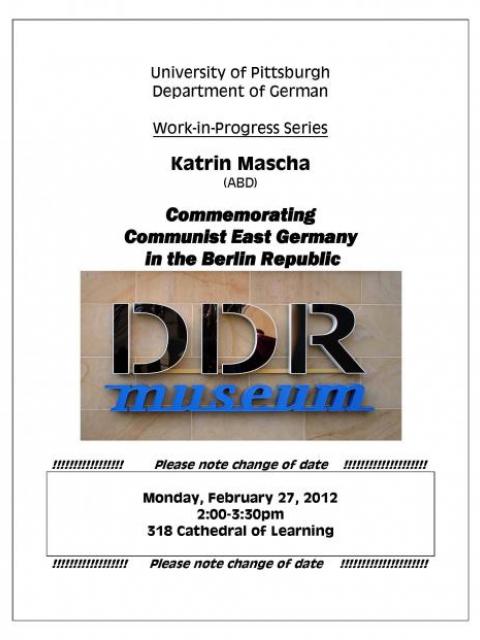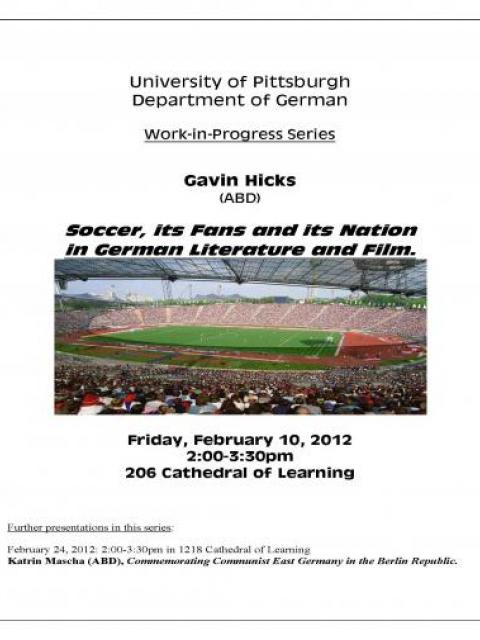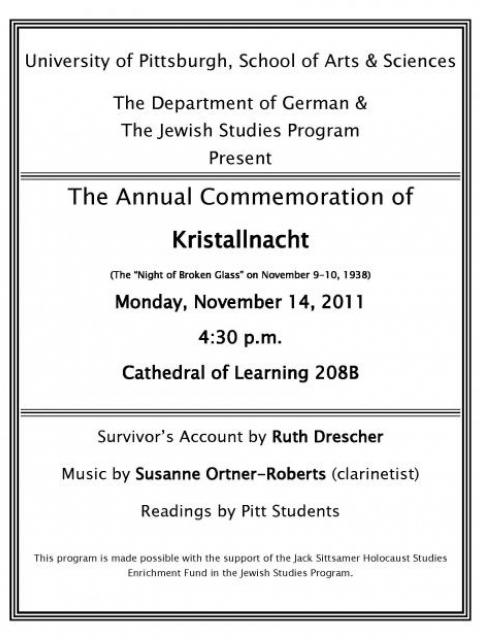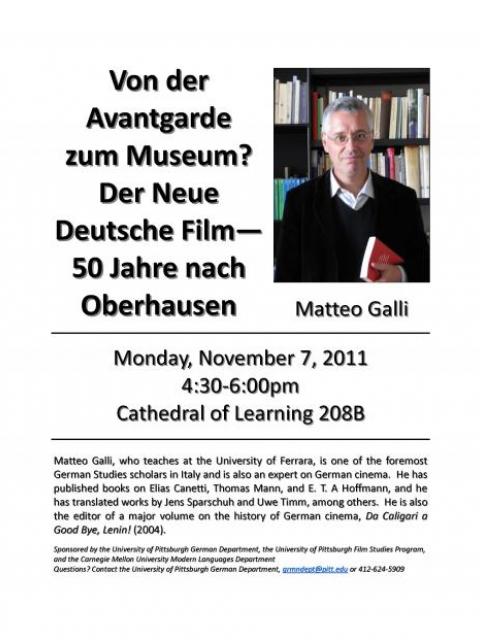TUESDAYS & THURSDAYS, STARTING FEBRUARY 2, 2012
“EUROPE AT 8:00” Eurochannel Short Films Tour
8:00 – 9:30 p.m., 4130 WWPH
Discover the newest perspectives of the European film scene through a series of short films from fifty-four film directors. The Eurochannel Short Films Tour has a strong regional footprint, revealing the creative genius of how cinema can be very diverse and surprising. Shaped by geographical and cultural features, those shorts films are as much charming as a work of the director’s passion. Stories of love or friendship in an adult’s brutal world, paintings of childhood feelings, stories of war or poverty, and comedies with unpredictable humor, Europe at 8:00 brings you the complexity of humanity as the European artists of the new generation see it. This series reflects unknown and unfamiliar dimensions of European reality.
Sponsored by: the European Union Center of Excellence/European Studies Center, the Russian & East European Studies Center
Europe at 8:00 – Film Schedule
Thursday, February 2
From Luxembourg: X on a Map, by Jeff Desom 13 minutes
From Portugal: Alfama, by João Viana 15 minutes
From France: Port of Call, by Eléa Gobbé-Mévellec 6 minutes
From Belgium: The End of the World, by Michael Havenith 10 minutes
From Azerbaijan: Theatrical Life, by Ilqar Najaf 22 minutes
From Latvia: Signs of Light, by Ilze Kunga 18 minutes
Tuesday, February 7
From Switzerland: Scribbling & Tingling, by Amaury Berger 13 minutes
From England: I’ll Tell You, by Rachel Tillotson 10 minutes
From Spain: Worstward Ho, by Alex Brendemühl 12 minutes
From Scotland: A Cheeky 20, by Chris Fallen 3 minutes
From Austria: Little World, by Marco F. Zimprich 18 minutes
From Poland: Endless Beginners, by Justyna Nowak 30 minutes
Thursday, February 9
From Bosnia & Herzegovina: I Don’t Dream in German, by Ivana Lalovic 13 minutes
From Italy: The Other Half, by Pipo Mazzepesa 9 minutes
From France: Last Markdown, by Nicolas Slomka 14 minutes
From Georgia: The Highway, by Sandro Japaridze 10 minutes
From Slovakia: Viliam, by Veronika Obertová 8 minutes
From Russia: Nail, by Michael Lockshin 13 minutes
From Albania: Snowdrops, by Robert Budina 26 minutes
Tuesday, February 14
From Belgium: Marie, by Jozefien Scheepers 17 minutes
From Switzerland: Parents, by Fernando Tiberini 11 minutes
From Spain: Lala, by Esteban Crespo Garcia 19 minutes
From Kosovo: The Dinner, by Blerta Zeqiri 17 minutes
From the Netherlands: Cat & Mice, by Nova van Dijk 9 minutes
Thursday, February 16
From the Czech Republic: Saharan Sands, by Josef Tuka 18 minutes
From Croatia: That Little Hand of Yours, Sara Hribar 23 minutes
From Ireland: The Ballad of Kid Kanturk, by John Butler 12 minutes
From Italy: From the 41st Minute, by Matteo Pellegrini 9 minutes
From Hungary: With a Little Patience, Laszlo Nemes 14 minutes
From Denmark: Peaceforce, by Peter Gornstein 19 minutes
Tuesday, February 21
From Serbia: Old Mountain, by Goran Stankovic 18 minutes
From Malta: .303, by David Serge 11 minutes
From Spain: Let’s Go to Plan B, by Paz Piñar 14 minutes
From Turkey: Snow, by Erol Mintas 22 minutes
From Wales: Skimming Pebbles, by Tariq Ali 9 minutes
From Romania: The Cage, by Adrian Sitaru 17 minutes
Thursday, February 23
From Montenegro: Masks, by Andro Martinovic 13 minutes
From Germany: Lumen, by Philip Koch 29 minutes
From Sweden: The Last Things, by Levan Akin 20 minutes
From Lithuania: Grandpa, by Andrius Paskevicius 11 minutes
From Moldova: Sasa, Grisa & Ion, by Igor Cobileanski 11 minutes
From Macedonia: Glow, by Tamislav Aleksov 15 minutes
Tuesday, February 28
From Switzerland: Laterarius, by Marina Rosset 3 minutes
From Cyprus: Trachoni, by Nick Kapros 10 minutes
From Ukraine: Her Seat is Vacant, by Bohdana Smymova 17 minutes
From Northern Ireland: Paint, by Ryan Tohill 9 minutes
From Iceland: Safe Journey, David Óskar Ólafsson 22 minutes
From Norway: A Tale of Balloons, by Torfinn Iversen 14 minutes
From Spain: Duck Crossing, by Koldo Almandoz 12 minutes
Thursday, March 1
From Belarus: Life is Infinite Return, by Vladimir Piskunovic 17 minutes
From Armenia: Ararat, by Renaud Armanet 13 minutes
From Bulgaria: Someone Else’s Steps, by Neda Morfova 4 minutes
From Greece: Samurai, by Theo Papadoulakis 26 minutes
From Finland: Kirkonkyla Kyrkby, Elise Pietarila 14 minutes
From Estonia: Champion, by Kaupo Kruusiauk 13 minutes



